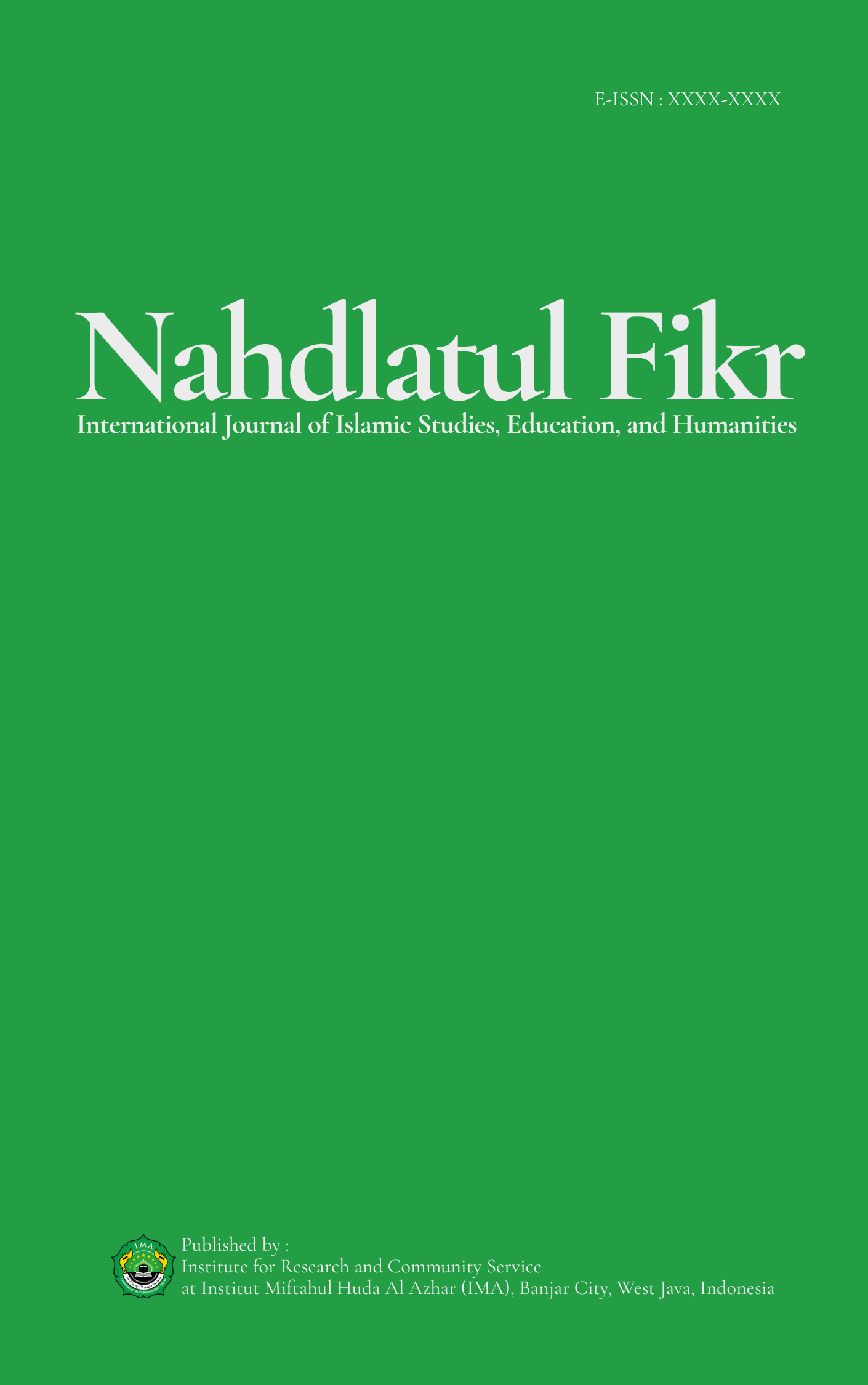Dynamics of Critical Thinking Among Islamic Family Law Students: A Study at STISA Ash-Shofa Manonjaya Tasikmalaya, Indonesia
Main Article Content
Abstract
Background: Critical thinking is a vital skill for students in Islamic Family Law, particularly given the multifaceted nature of legal challenges in both academic and professional settings. However, its development at Sekolah Tinggi Ilmu Syariah Wal Aqidah Ash-Shofa (STISA Ash-Shofa) is hindered by traditional, lecture-based instruction and limited opportunities for active learning.
Methods: This qualitative study used semi-structured interviews and classroom observations to explore how critical thinking is currently fostered. Participants included Islamic Family Law students and lecturers. Thematic analysis was employed to identify patterns, barriers, and enabling factors in cultivating critical thinking within the academic environment.
Results: Findings show that non-interactive teaching limits students’ ability to analyze, evaluate, and construct legal arguments. Students often lack confidence to express ideas and are rarely exposed to real-world legal problems. Lecturers also noted the absence of participatory learning models and practical materials that bridge theory and practice.
Conclusion: The study recommends incorporating interactive pedagogies—such as case-based learning, legal simulations, and collaborative discussions—to enhance students’ analytical engagement. Building a supportive, feedback-rich classroom atmosphere is also essential to encourage expression and improve critical reasoning. These interventions are key to preparing competent, reflective legal professionals.
Novelty: This study’s strength lies in its integrative perspective, drawing insights from both students and faculty to design contextually relevant strategies for advancing critical thinking in Islamic legal education.
Downloads
Article Details
How to Cite
References
Al Jahsh, M. A. I. (2024). Science and Islamic ethics: Navigating artificial womb technology through Quranic principles. Heliyon, 10(17), e36793. https://doi.org/10.1016/j.heliyon.2024.e36793
Ayçiçek, B. (2021). Integration of critical thinking into curriculum: Perspectives of prospective teachers. Thinking Skills and Creativity, 41, 100895. https://doi.org/10.1016/j.tsc.2021.100895
Basiran. (2024). Hasil wawancara dengan Bapak Basiran, S.H, M.Kn, Dosen STISA Ash-Shofa Manonjaya Prodi HKI tentang dinamika berpikir kritis di kalangan mahasiswa hukum keluarga Islam, pada 10 Maret 2024 [Komunikasi pribadi].
Bellaera, L., Weinstein-Jones, Y., Ilie, S., & Baker, S. T. (2021). Critical thinking in practice: The priorities and practices of instructors teaching in higher education. Thinking Skills and Creativity, 41, 100856. https://doi.org/10.1016/j.tsc.2021.100856
Danni, R., & Tauratiya, T. (2020). Analisis kemampuan berpikir kritis mahasiswa Program Studi Hukum Keluarga Islam IAIN Syaikh Abdurrahman Siddik Bangka Belitung. Tarbawy: Jurnal Pendidikan Islam, 7(1), Article 1. https://doi.org/10.32923/tarbawy.v7i1.1191
Dong, M., Li, F., & Chang, H. (2023). Trends and hotspots in critical thinking research over the past two decades: Insights from a bibliometric analysis. Heliyon, 9(6), e16934. https://doi.org/10.1016/j.heliyon.2023.e16934
Hapidin, A. (2024). Hasil wawancara dengan Bapak Dr. Ahmad Hapidin, S.H, Wakil Ketua I Bidang Akademik STISA Ash-Shofa Manonjaya tentang dinamika berpikir kritis di kalangan mahasiswa hukum keluarga Islam, pada 9 Maret 2024 [Komunikasi pribadi].
Pambudi, N. A., & Ulfa, D. K. (2024). The geothermal energy landscape in Indonesia: A comprehensive 2023 update on power generation, policies, risks, phase and the role of education. Renewable and Sustainable Energy Reviews, 189, 114008. https://doi.org/10.1016/j.rser.2023.114008
Ridho, M. H. (2024). Hasil wawancara dengan Muhammad Hafidz Ridho, Mahasiswa STISA Ash-Shofa Manonjaya Prodi HKI tentang dinamika berpikir kritis di kalangan mahasiswa hukum keluarga Islam, pada 12 Maret 2024 [Komunikasi pribadi].
Sulaiman, A., & Syakarofath, N. A. (2018). Berpikir kritis: Mendorong introduksi dan reformulasi konsep dalam psikologi Islam. Buletin Psikologi, 26(2), Article 2.
Suntana, I., Rusliana, I., Asdak, C., & Gazalba, L. (2023). Ideological distrust: Re-understanding the debate on state ideology, normalization of state-religion relationship, and legal system in Indonesia. Heliyon, 9(3), e14676. https://doi.org/10.1016/j.heliyon.2023.e14676
Usmani, S. (2024). Perceptions of politics and knowledge sharing: Moderating role of Islamic work ethic in the Islamic banking industry of Pakistan. Heliyon, e37032. https://doi.org/10.1016/j.heliyon.2024.e37032
Utami, M., & Sugitanata, A. (2024). Analisis siyasah syar’iyah terhadap dinamika keadilan dan dualitas penegakan hukum dalam serial anime One Piece. Jurnal Darussalam: Pemikiran Hukum Tata Negara dan Perbandingan Mazhab, 4(1), Article 1. https://doi.org/10.59259/jd.v4i1.124
Wijatmoko, E., Armawi, A., & Fathani, T. F. (2023). Legal effectiveness in promoting development policies: A case study of North Aceh Indonesia. Heliyon, 9(11), e21280. https://doi.org/10.1016/j.heliyon.2023.e21280
Zhang, Q., Tang, H., & Xu, X. (2022). Analyzing collegiate critical thinking course effectiveness: Evidence from a quasi-experimental study in China. Thinking Skills and Creativity, 45, 101105. https://doi.org/10.1016/j.tsc.2022.101105
